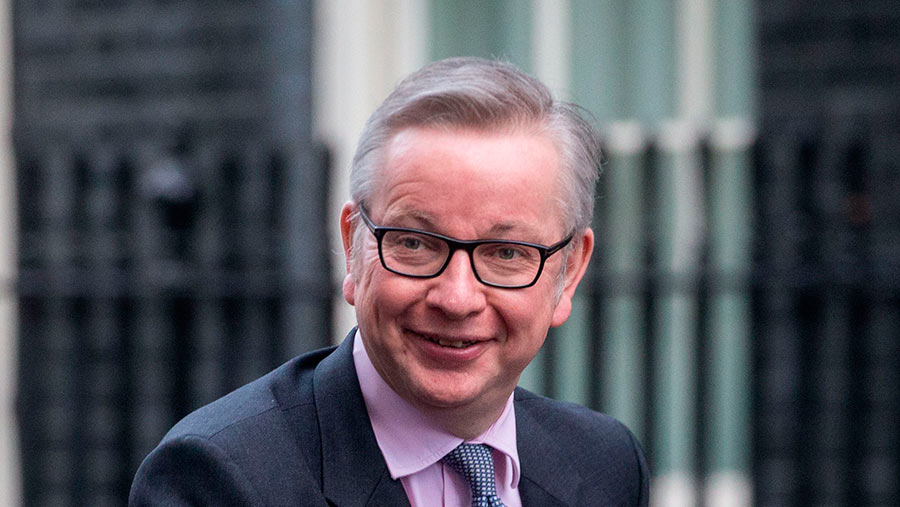OFC 2018: Basic payments to stay until 2024
 © Mark Thomas/REX/Shutterstock
© Mark Thomas/REX/Shutterstock Basic farm payments will continue to be made until 2024 as the government grants farmers a five-year transition period to adjust to Brexit.
But Defra secretary Michael Gove has confirmed plans to limit payments to larger farms as he paves the way for a post-Brexit farm policy focused largely on the environment.
Mr Gove will underline his intention to limit the amount of direct payments received by larger farms at the Oxford Farming Conference (OFC) on Thursday (4 January).
See also: Gove prepares to announce limit on farm support
“Paying landowners for the amount of agricultural land they have is unjust, inefficient and drives perverse outcomes,” he is expected to tell delegates.
“It gives the most from the public purse to those who have the most private wealth.”
Some 80% of agricultural support is currently paid on the area of farmland in use.
Previously the government has said that payments to farmers will continue until 2020, with agriculture receiving the same total allocation of money as it receives now until 2022.
While that timetable has now been extended, Mr Gove remains keen to impose a ceiling on the amounts received.
Capping is expected to be one of the first changes that will be made after the UK leaves the European Union – but direct payments will continue until March 2024.
A Defra paper to be published this month will detail the means by which the government will impose the cap on direct payments.
It will be followed by a government consultation and a post-Brexit Agriculture Bill later this year.
In a move that underlines his plans for a “green” Brexit, Mr Gove is hold a Q&A at the rival Oxford Real Farming Conference on the same day he addresses the Oxford Farming Conference.
Support for hill farmers
He is expected to flesh out plans to base farm support payments on environmental measures and the delivery of public goods, rather than simply basing them on land ownership.
Some farmers will still need a form of payment, acknowledged Mr Gove last month.
They included upland hill sheep farmers, who would continue to require support for several years to come – and certainly beyond 2022, he told MPs.
The total sum of money that currently goes to farmers, landowners and land managers will also remain unchanged, he told the House of Comments environment select committee.
But it is important to spend it more effectively – to improve productivity and protect the environment while supporting farmers in less favoured areas.
Enable investment
In his New Year message, NFU president Meurig Raymond said future policy must enable British farmers to invest and grow their businesses.
Competitive, sustainable and profitable farms were central to a dynamic food supply chain and increasing the UK’s self-sufficiency.
As well as protecting the environment, future policy should allow farms to be profitable, productive and progressive, said Mr Raymond.
He added: “Opportunities have and will continue to arise throughout Brexit negotiations and we must be ready to take them wherever we can.”
